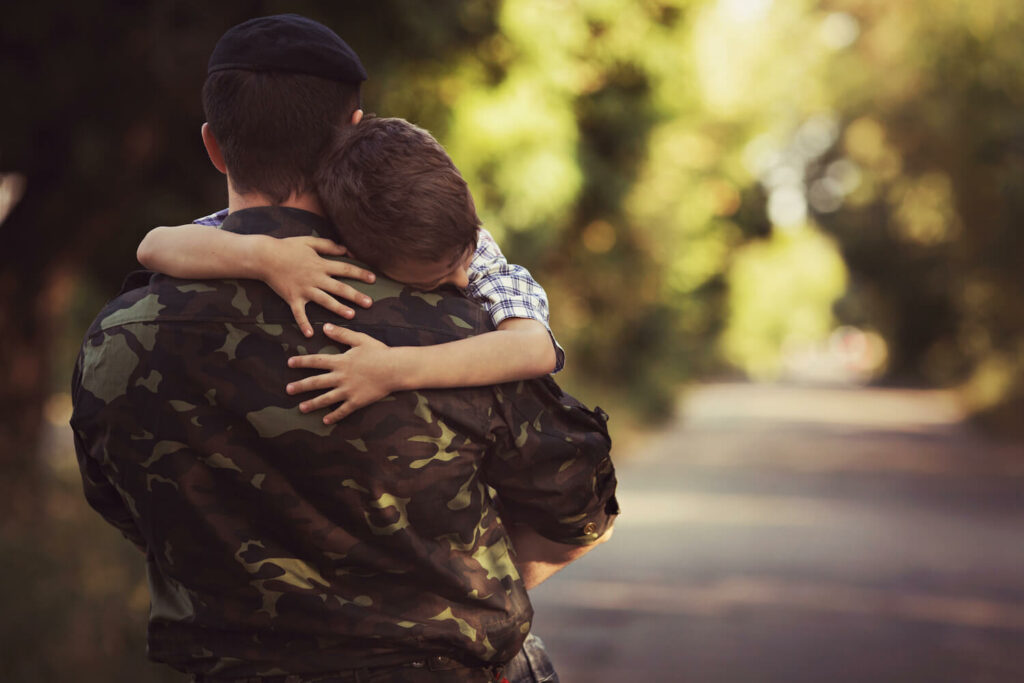Military deployment is a difficult and stressful time for everyone involved, especially for children. It is important to help children cope with the separation and changes that come with military deployment. In this article, we will discuss various strategies to help children deal with the challenges they may face during this time.
Understanding the Effects of Military Deployment on Children
Military deployment can have a significant impact on children’s emotional and mental well-being. Children may experience feelings of sadness, anxiety, anger, and confusion during this time. The uncertainty of the situation and the changes in daily routines can be overwhelming for children. It is important to understand the effects of military deployment on children so that you can help them cope with these challenges.
Age-Related Effects of Military Deployment
The effects of military deployment on children can vary depending on their age. Younger children may not fully understand what is happening and may feel scared and insecure. School-aged children may feel a sense of loss and may struggle to maintain their daily routines. Adolescents may experience a range of emotions, including anger, frustration, and sadness. It is important to understand the age-related effects of military deployment so that you can provide appropriate support to your children.
Communicating with Children about Family Deployment
Communication is key when it comes to helping children cope with military deployment. It is important to talk openly and honestly with children about what is happening and what to expect. Here are some strategies for communicating with children about deployment:
Be Honest and Open
Children need to know the truth about what is happening. It is important to be honest and open with them, even if the truth is difficult to hear. Use age-appropriate language to explain the situation and answer any questions they may have.
Use Visual Aids
Visual aids such as pictures, maps, and calendars can help children understand what is happening and when. Use these tools to help children visualize the deployment timeline and what to expect.
Listen and Validate Feelings
It is important to listen to your children’s feelings and validate them. Let them know that it is okay to feel sad, scared, or angry. Offer support and reassurance that you will be there for them throughout the deployment.
Preparing for Parent Deployment
Preparing for deployment can help ease some of the stress and uncertainty that children may feel. Here are some strategies for preparing for deployment:
Create a Deployment Plan
Create a deployment plan that includes important information such as contact information, schedules, and routines. This will help children feel more secure and provide them with a sense of predictability during the deployment.
Involve Children in the Planning Process
Involve children in the planning process so that they feel like they have some control over the situation. Allow them to help create the deployment plan and make decisions about how to stay in touch during the deployment.
Maintaining Connections during Deployment
Maintaining connections with loved ones during deployment is crucial for children’s emotional well-being. Here are some strategies for maintaining connections during deployment:
Use Technology to Stay in Touch
Technology can be a great way to stay in touch with loved ones during deployment. Use video chats, phone calls, and messaging apps to stay connected with your children.
Managing Emotions during Deployment
Managing emotions during deployment can be challenging for children. Here are some strategies for helping children manage their emotions during deployment:
Encourage Healthy Coping Mechanisms
Encourage children to engage in healthy coping mechanisms such as exercise, art, and music. These activities can help children manage their emotions and feel better.
Keep a Deployment Journal
Encourage children to keep a deployment journal where they can write about their feelings and experiences during the deployment. This can help them process their emotions and feel connected to their loved ones.
Practice Mindfulness
Mindfulness can be a useful tool for helping children manage their emotions during deployment. Encourage children to practice mindfulness exercises such as deep breathing and meditation.
Reuniting after Deployment
Reuniting after deployment can be an exciting but also challenging time for children. Here are some strategies for helping children adjust to life after deployment:
Take it Slow
Take it slow when reuniting with your children after deployment. Give them time to adjust to being back home and reintegrate into their daily routines.
Reestablish Routines
Reestablishing routines can help children feel more secure and comfortable after deployment. Try to get back into your regular routines as soon as possible.
Seeking Professional Help
Sometimes children may need professional help to cope with the challenges of military deployment. Here are some resources for seeking professional help:
Military Family Life Counselors
Military Family Life Counselors (MFLCs) provide free counseling services to military families. They can help children and their parents cope with the challenges of deployment.
Military OneSource
Military OneSource is a free resource for military families. They provide a range of services, including counseling and support groups for children and their parents.
Tips for Family and Friends to Support Military Families
Family and friends can play an important role in supporting military families during deployment. Here are some tips for supporting military families:
Stay in Touch
Staying in touch with military families during deployment can provide much-needed support and encouragement. Send care packages, make phone calls, and use social media to stay connected.
Offer to Help
Offer to help military families with daily tasks such as grocery shopping, childcare, and household chores. This can be a big help during deployment.
Be Understanding
Be understanding of the challenges that military families face during deployment. Offer support and encouragement, and be there to listen when they need to talk.
Conclusion
Military deployment can be a challenging time for children, but there are strategies that can help them cope with the changes and uncertainty that come with deployment. By communicating openly and honestly, preparing for deployment, maintaining connections, managing emotions, and seeking professional help when necessary, children can successfully navigate the challenges of military deployment.



